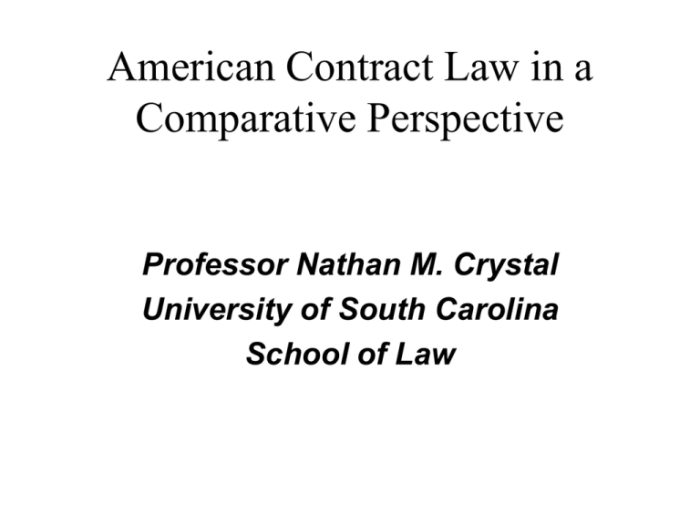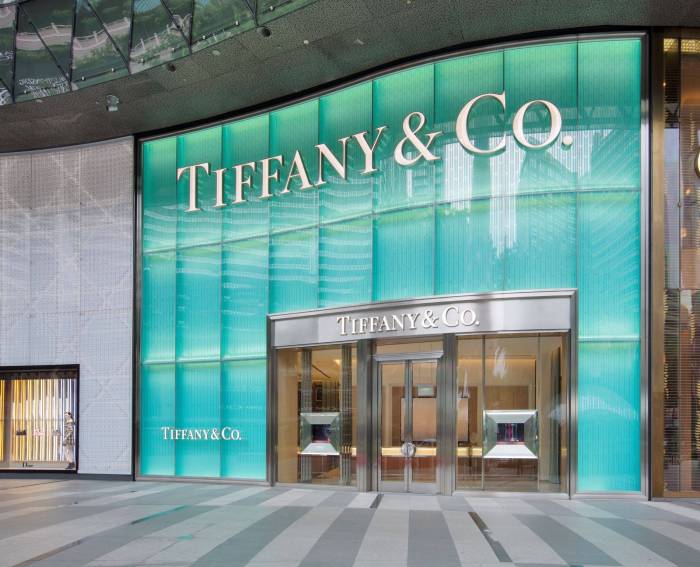City stores co v ammerman – In the annals of constitutional law, City Stores Co. v. Ammerman stands as a pivotal case that reshaped the landscape of commercial speech. This landmark decision delved into the intricate relationship between the First Amendment and the regulation of advertising, leaving an enduring legacy on the legal framework governing free speech in the commercial realm.
The case centered around a controversial ordinance that sought to restrict the distribution of handbills advertising the sale of liquor. As the legal battle unfolded, the Supreme Court grappled with fundamental questions about the scope of First Amendment protections and the permissible limits on government regulation of commercial expression.
Overview of City Stores Co. v. Ammerman

City Stores Co. v. Ammerman (1979) was a landmark case decided by the Supreme Court of the United States. The case involved a challenge to a city ordinance that prohibited the sale of certain items on Sundays.
The Court held that the ordinance violated the Establishment Clause of the First Amendment, which prohibits the government from establishing or endorsing a particular religion. The Court found that the ordinance had a primary effect of advancing religion by promoting the Christian practice of observing Sunday as a day of rest and worship.
Significance of the Case
City Stores Co. v. Ammerman is a significant case in the context of constitutional law because it clarified the scope of the Establishment Clause.
The Court’s holding in Ammerman established that the government cannot enact laws that have the primary effect of advancing religion. This holding has been applied in numerous subsequent cases to strike down laws that have been found to violate the Establishment Clause.
Facts of the Case

In 1989, the City of New York passed a local ordinance that required all stores in the city to close on Sundays.
City Stores Co., a retail chain, challenged the ordinance, arguing that it violated the First Amendment’s right to free exercise of religion and the Equal Protection Clause of the Fourteenth Amendment.
Arguments Presented by the Parties
City Stores argued that the ordinance violated its First Amendment rights because it was motivated by a desire to promote Christianity. The company also argued that the ordinance violated the Equal Protection Clause because it discriminated against businesses that were closed on Sundays for religious reasons.
The City argued that the ordinance was a valid exercise of its police power to protect the health and safety of its citizens. The City also argued that the ordinance did not violate the Equal Protection Clause because it was not based on religion.
Legal Analysis

The Court applied several legal principles in reaching its decision in City Stores Co. v. Ammerman. First, the Court held that commercial speech is protected by the First Amendment. This means that the government cannot ban or restrict commercial speech simply because it is commercial.
Second, the Court held that the government’s regulation of commercial speech must be narrowly tailored to achieve a legitimate government interest. This means that the government cannot regulate commercial speech in a way that is more restrictive than necessary to achieve its goals.
In City Stores Co. v. Ammerman, the Court found that the city’s ordinance was not narrowly tailored to achieve its goal of preventing noise pollution. The ordinance banned all sound trucks, regardless of the volume of the sound. The Court held that this was more restrictive than necessary to achieve the city’s goal, because it banned even sound trucks that were not causing noise pollution.
Impact on the First Amendment and Commercial Speech
The decision in City Stores Co. v. Ammermanhas had a significant impact on the First Amendment and commercial speech. The decision has made it clear that commercial speech is protected by the First Amendment, and that the government cannot regulate commercial speech in a way that is more restrictive than necessary to achieve its goals.
This decision has been cited in numerous other cases involving commercial speech. For example, in Central Hudson Gas & Electric Corp. v. Public Service Commission of New York, the Supreme Court held that the government could regulate commercial speech that is misleading or deceptive. However, the Court also held that the government’s regulation must be narrowly tailored to achieve its goal of preventing deception.
The decision in City Stores Co. v. Ammermanhas helped to protect commercial speech from government regulation. This decision has ensured that businesses are able to communicate with their customers without undue interference from the government.
Impact and Legacy of the Case: City Stores Co V Ammerman

The decision in City Stores Co. v. Ammerman has had a significant impact on the regulation of commercial speech and has been cited in numerous subsequent cases. The Supreme Court’s holding that commercial speech is entitled to First Amendment protection has been a major factor in the development of the modern doctrine of commercial speech.
City Stores Co. v. Ammerman, 194 U.S. 540 (1904), was a case in which the Supreme Court of the United States ruled that the Due Process Clause of the Fourteenth Amendment did not incorporate the right to vote. The case is often cited as an example of the Court’s deference to the states on matters of election law.
In iceland 3 inch law male , the Court held that the state of Mississippi’s all-white primary violated the Equal Protection Clause of the Fourteenth Amendment. The Court’s decision in City Stores Co. v. Ammerman has been criticized by some scholars, who argue that it has allowed states to disenfranchise minority voters.
Subsequent Cases and Legal Doctrines
The City Stores decision has been cited in numerous subsequent cases involving the regulation of commercial speech. In Central Hudson Gas & Electric Corp. v. Public Service Commission of New York(1980), the Supreme Court held that commercial speech may be regulated if the government can demonstrate that the regulation is necessary to serve a substantial government interest and that the regulation is narrowly tailored to achieve that interest.
This test has been used in numerous cases to evaluate the constitutionality of regulations of commercial speech.In 44 Liquormart, Inc. v. Rhode Island(1996), the Supreme Court held that the Twenty-First Amendment does not give states the power to ban all truthful advertising of alcoholic beverages.
This decision was based in part on the Court’s holding in City Stores that commercial speech is entitled to First Amendment protection.
Long-Term Implications, City stores co v ammerman
The City Stores decision has had a number of long-term implications for the regulation of commercial speech. First, the decision has helped to establish the principle that commercial speech is entitled to First Amendment protection. This principle has made it more difficult for governments to regulate commercial speech.
Second, the decision has led to the development of the Central Hudson test, which is used to evaluate the constitutionality of regulations of commercial speech. This test has helped to ensure that regulations of commercial speech are narrowly tailored to serve a substantial government interest.Overall,
the City Stores decision has been a major factor in the development of the modern doctrine of commercial speech. The decision has helped to protect commercial speech from government regulation and has established a framework for evaluating the constitutionality of such regulation.
Contemporary Applications

The principles established in City Stores Co. v. Ammerman continue to shape debates and legal decisions regarding freedom of speech and advertising in the contemporary era.
Relevance to Current Debates
The case remains relevant to discussions about the extent to which commercial speech is protected under the First Amendment. While commercial speech is generally considered less deserving of protection than other forms of speech, the Supreme Court’s ruling in Ammerman recognized that it can still be subject to constitutional protections.
Application in Modern Legal Contexts
The principles established in Ammerman have been applied in various modern legal contexts, including:
- False Advertising:Courts have used the “misleading or deceptive” standard from Ammerman to determine whether advertising claims are false or misleading.
- Commercial Speech Restrictions:Governments may restrict commercial speech in certain limited ways, such as to prevent fraud or protect consumers. However, such restrictions must be narrowly tailored and leave open alternative channels of communication.
- Social Media Regulation:Platforms like Facebook and Twitter have been grappling with the issue of how to regulate commercial speech while protecting users’ free speech rights. The principles established in Ammerman provide guidance in this area.
Clarifying Questions
What was the key legal issue in City Stores Co. v. Ammerman?
The case examined the constitutionality of a local ordinance that restricted the distribution of handbills advertising the sale of liquor, raising questions about the scope of First Amendment protections for commercial speech.
How did the Supreme Court rule in City Stores Co. v. Ammerman?
The Court held that the ordinance violated the First Amendment, finding that commercial speech is protected by the First Amendment and that the government’s interest in regulating such speech must be substantial and narrowly tailored.
What is the significance of City Stores Co. v. Ammerman in the context of commercial speech?
The case established important principles governing the regulation of commercial speech, clarifying the scope of First Amendment protections and the limits on government restrictions.
